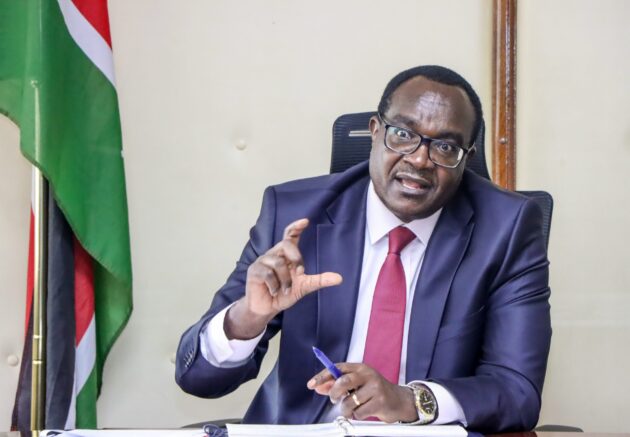Education CS Julius Ogamba outlines new funding and partnership strategies to address infrastructure and staffing challenges in Kenya’s Junior Secondary Schools.
Kenya’s Ministry of Education is taking decisive steps to strengthen Junior Secondary Schools (JSS) through a comprehensive reform plan that targets staffing, infrastructure, and curriculum delivery. Education Cabinet Secretary Julius Migos Ogamba told the Senate that the reforms are part of a broader strategy to enhance the effectiveness of the Competency-Based Curriculum (CBC).
Mr. Ogamba explained that the government is fine-tuning the JSS model in response to growing concerns from parents, teachers, and lawmakers. “The process of reforming Junior Secondary to respond to any emerging concerns is ongoing. We will present detailed proposals to Parliament for consideration in due course,” he assured.
Tackling staffing shortages
Addressing questions from Murang’a Senator Joe Nyutu, the CS acknowledged that some JSS teachers are handling subjects beyond their specialization due to curriculum changes. However, he noted that the ministry has retooled all teachers to ensure they are adequately prepared to teach across the new learning areas.
“The retooling covered both pedagogy and content, ensuring that every teacher can handle CBC subjects effectively,” he said. The Ministry has also prioritized recruiting teachers in science, mathematics, and technical fields to resolve staffing gaps in critical areas.
Expanding infrastructure through partnerships
When questioned by Tharaka Nithi Senator Mwenda Gataya about infrastructure funding, Mr. Ogamba said the Ministry is adopting a multi-pronged approach that goes beyond reliance on the National Government Constituencies Development Fund (NG-CDF).
He revealed that the Ministry is engaging development partners such as the World Bank, the Global Partnership for Education, the Kuwaiti Fund, and local partners like the Safaricom Foundation to expand school infrastructure. Additionally, the government is encouraging alumni-led and community-driven initiatives to mobilize resources for improving school facilities.
“Such partnerships foster ownership and sustainability while complementing government efforts,” the CS emphasized.
He also confirmed that schools receive Ksh.4,000 per learner annually under the infrastructure improvement allocation, which can be used to build or repurpose laboratories and workshops. The reforms, he added, will ensure that JSS continues to provide quality education aligned with Kenya’s national development goals.





